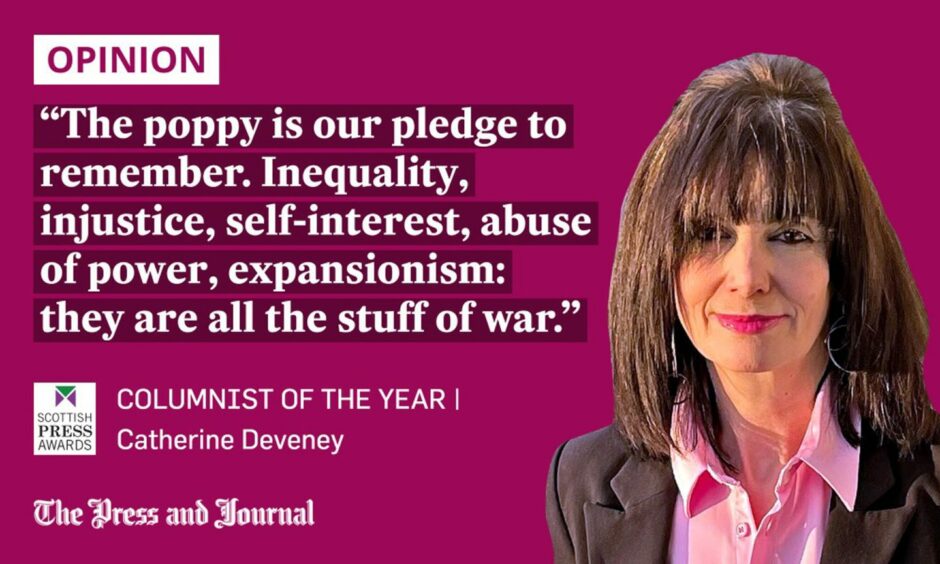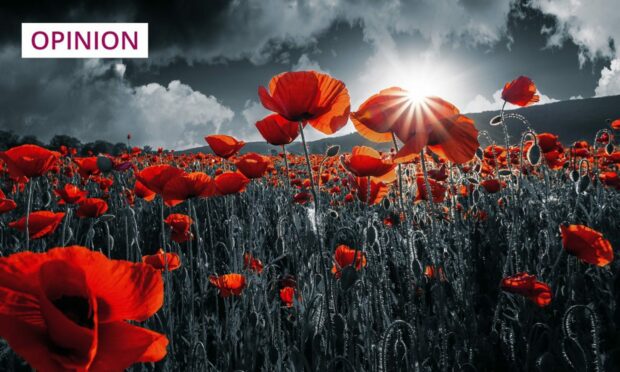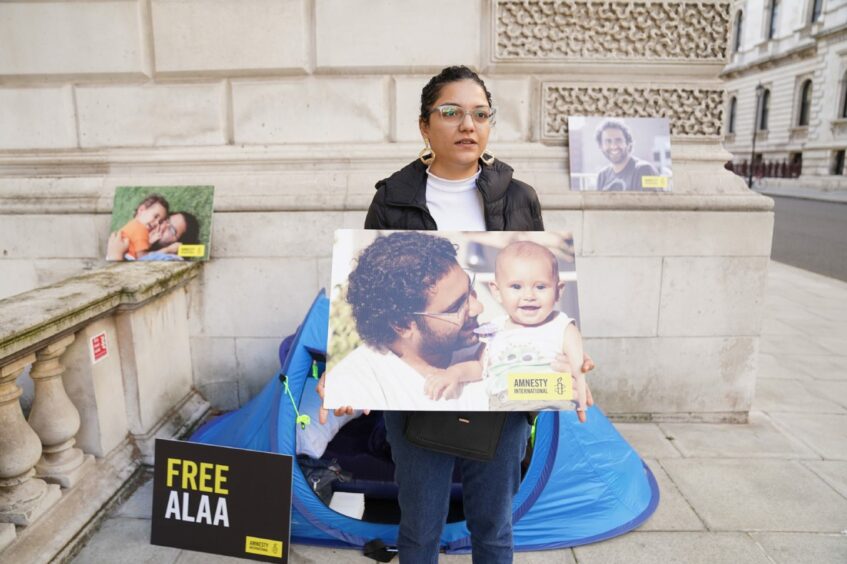The poppies in the fields of Flanders lie, “between the crosses, row on row”, a sea of colour dancing round the war graves of the fallen. The poppies are wild, springing up naturally where earth is disturbed, a symbol of hope that has been translated into a neat, manufactured paper flower, evident on the lapels of world leaders at Cop27.
In they file, all suits and smiles, their poppies paying tribute, apparently, to the victories of democracy.
Bit ironic, really, given that they are in Egypt, a country that ruthlessly suppresses dissenters, like pro-democracy protester Alaa Abd El-Fattah, and has incarcerated an estimated 60,000 political prisoners.
This week saw 25,000 of the world’s most influential people gather in the Red Sea resort of Sharm El Sheikh, with its tourist gloss of turquoise waters, palm trees and coral reef, for the climate discussions.

El-Fattah, meanwhile, lies languishing in an Egyptian jail. The blogger and engineer, regarded by the authorities as an “icon of the revolution” for his part in the uprising against President Mubarak in 2011, has spent nine years of his life in jail.
Cop27 only exists because democracy does
Most recently, he received a five-year sentence for “broadcasting false news” – a bogus charge according to human rights organisations. Now on hunger strike, his family fear for his life, saying he is skin on bone, with sunken eyes and little energy.
Rishi Sunak has agreed to raise his case with the Egyptian authorities during the summit because El-Fattah received British citizenship last December through his London-born mother.
Today, at the opening ceremony of the Sharm El-Sheikh Climate Implementation Summit, world leaders, envoys, delegates, & members of civil society came together in a unified front to further mobilize & prioritize the global climate agenda. #COP27 #TogetherForImplementation pic.twitter.com/LXJzbGFYl3
— COP27 (@COP27P) November 7, 2022
Strikingly, Sunak emerged from his plane last Sunday with his blood-red poppy pinned on the breast of his white shirt. On the surface, he was part of the international community coming together, through the United Nations, to collaborate on a global emergency, a community that exists because of alliances that formed in post-war peace processes. Realistically, Cop27 only exists because democracy does.
Remembering what those poppies pinned to shirts stand for
So, it is hard not to question what democratic world discussions really mean when they take place in a country that suppresses and punishes dissenting voices. Just as questions are being asked about the appropriateness of Qatar holding the world cup this month.
Does attendance indicate acceptance for a regime whose values are the antithesis of democracy? What are the longer-term implications of polite pretence and acquiescence when it comes to anti-democratic regimes?
Cyber security experts, for example, are unnerved by the fact that the official app for the conference requires details that would enable the Egyptian authorities to track and harass both attendees and critical domestic voices. Is Egypt the right location? Is Qatar?
How hard will Sunak fight for El-Fattah? Or to put it another way, how hard will he fight for the democratic values that the poppy on his shirt proclaims? Today, on Remembrance Day, El-Fattah is as powerful a symbol of democracy as the poppy. He is the voice that will not be silenced, despite pressure and punishment. He is the suppression of fear, and the assertion of justice. He is courage and tenacity and defiance. Sometimes, we need a person to remind us what abstract symbols are all about.
Our pledge to remember
Calling for the immediate release of El-Fattah, the UN’s Special Rapporteur on Human Rights and the Environment tweeted, “Freedom of speech is a prerequisite for climate justice!” It was an argument backed by Amnesty International, who said no country could credibly address climate change while suppressing their citizens. “Freedom of expression, peaceful assembly and association,” they said, “is key to securing a rapid and just transition to zero-carbon economies and resilient societies.”
Unlike Cop26, Cop27 will not be about creating new agreements. It will, we are told, be about holding nations to account for their failure to live up to the agreements they made last year. The world’s five biggest oil companies have made a combined profit of $170 billion so far in 2022, a situation the world’s richest nations have enabled. Oil company shareholders may be happy, but it is just another example of the selfishness of the few guzzling the resources of the many. The poorest nations on earth, who suffer most from the effects of climate change, have done least to cause it.
📢 Today #COP27 opens amidst a human rights crisis in #Egypt. Away from Sharm El-Sheikh, 1000s are unjustly jailed in horrid conditions, including Alaa Abdel Fattah, who after 219 days has escalated his hunger strike and stopped drinking water.
#FreeAlaa, free them all ✊
— Amnesty International (@amnesty) November 6, 2022
The poppy is our pledge to remember. Inequality, injustice, self-interest, abuse of power, expansionism: they are all the stuff of war. Seeing politicians gathering at Sharm El Sheikh to discuss climate justice and equality, with poppies on their jackets, is a strangely conflicting sight.
Those who wear the poppy should not forget what it means, not forget those, like El-Fattah, who have become both the voice and the victim of democracy. Nor should they forget the famous lines of soldier-poet John McRae who urged future generations to, “take up our quarrel with the foe”, and to carry the torch of the fallen. “If ye break faith with us who die/We shall not sleep, though poppies grow/ In Flanders fields.”
Catherine Deveney is an award-winning investigative journalist, novelist, television presenter and Scottish Newspaper Columnist of the Year 2022


Conversation